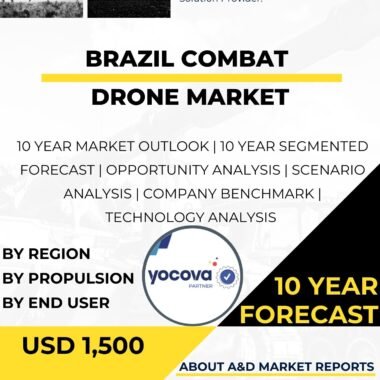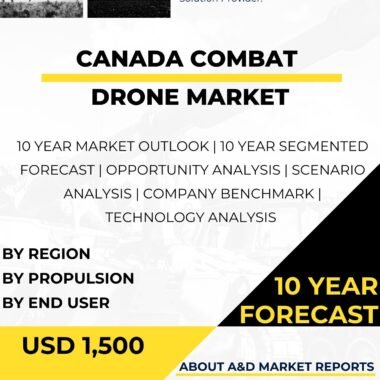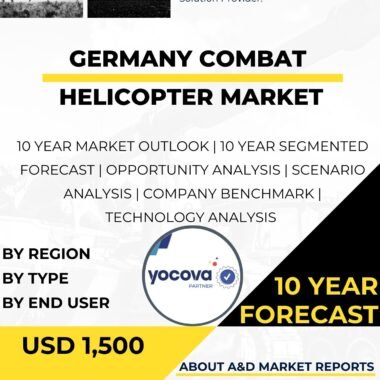Description
The Belgium combat drone market is an emerging and significant segment within the country’s defense industry. Combat drones, also known as unmanned aerial vehicles (UAVs), have become increasingly prevalent in modern warfare due to their ability to provide intelligence, surveillance, and reconnaissance (ISR) capabilities, as well as to conduct targeted strikes on enemy targets. Belgium recognizes the importance of combat drones in enhancing its defense capabilities, operational effectiveness, and situational awareness.
The primary driver for the Belgium combat drone market is the need for enhanced ISR capabilities and operational flexibility. Combat drones offer the ability to gather real-time intelligence, monitor enemy activities, and provide valuable situational awareness to military commanders. These capabilities are critical in supporting decision-making processes, improving operational effectiveness, and minimizing risks to military personnel.
Belgium’s domestic defense industry plays a significant role in the development, production, and integration of combat drones. Belgian companies, such as SABCA, Unifly, and ECA Group, have expertise in drone technologies and contribute to the country’s combat drone capabilities. These domestic capabilities foster innovation, create job opportunities, and contribute to the economic growth of the Belgium combat drone market.
Collaborations with international partners and suppliers are also significant for the Belgium combat drone market. Belgium often engages in partnerships with defense companies from NATO member states and other allied nations to access advanced combat drone technologies, benefit from joint development programs, and ensure interoperability with allied forces. These collaborations enable Belgium to leverage global advancements in combat drone technology and enhance its military capabilities.
Furthermore, Belgium’s participation in multinational defense initiatives influences the combat drone market. Collaboration within NATO and other international defense cooperation programs fosters interoperability, joint training exercises, and the exchange of best practices. This cooperation ensures compatibility and enhances operational effectiveness when conducting joint military operations with allied forces.
The Belgium combat drone market faces challenges such as technological advancements, regulatory frameworks, and ethical considerations. Technological advancements in combat drones, including improvements in flight endurance, range, payload capacity, and autonomous capabilities, require continuous research and development efforts. The Belgium market needs to stay at the forefront of innovation to provide state-of-the-art combat drones that meet evolving defense requirements.
Regulatory frameworks and airspace integration are crucial considerations for the deployment of combat drones. Belgium, like other nations, must ensure compliance with civil aviation regulations and establish appropriate protocols for the safe operation of combat drones in both military and civilian airspace.
Ethical considerations surrounding the use of combat drones are also important. Belgium’s defense forces must adhere to international humanitarian law and ensure the responsible and ethical use of combat drones in accordance with legal and moral standards. Efforts must be made to minimize civilian casualties and collateral damage during drone operations.
In conclusion, the Belgium combat drone market is an emerging and significant segment within the country’s defense industry. Combat drones play a critical role in enhancing ISR capabilities, operational flexibility, and situational awareness. Domestic capabilities, collaborations with international partners, and Belgium’s participation in international defense initiatives drive the growth and development of the combat drone market. As defense requirements evolve and technological advancements continue, the demand for advanced and versatile combat drones is expected to increase, fostering innovation, collaboration, and economic growth within the sector.




